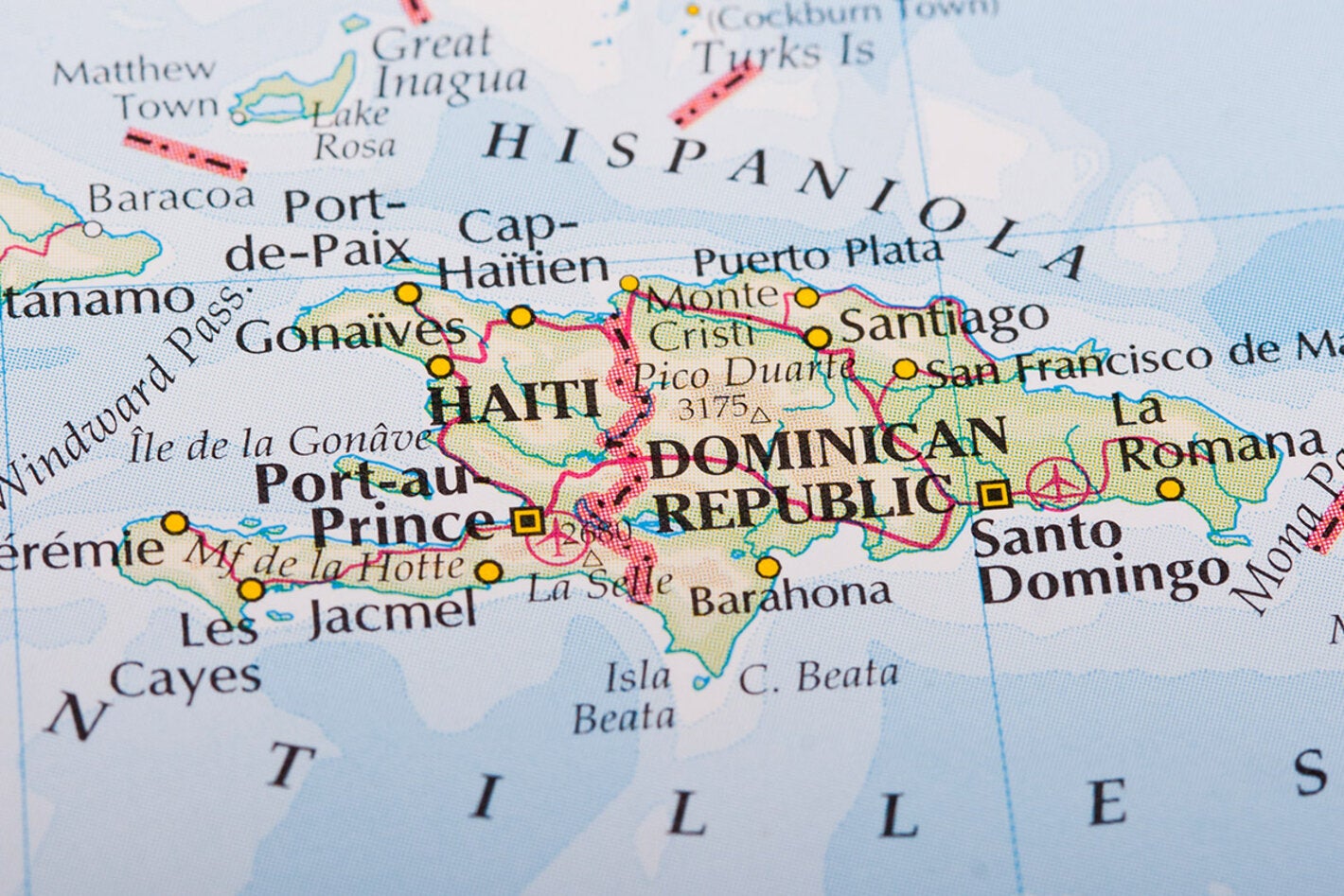
Past experience suggests it will take "some months to turn the tide"
Washington, D.C., October 27, 2010 (PAHO) — Haiti and its international partners are stepping up efforts to mitigate the cholera epidemic, which currently shows no signs of leveling off, said a top official of the Pan American Health Organization (PAHO) in a press briefing today.
Haiti's Ministry of Health today reported 4,147 cases of cholera and 292 deaths, up from 3,769 cases and 284 deaths reported yesterday. In addition to the department of Artibonite, where the first cases of cholera were reported, Haiti's Central and West departments are now reporting cases, and suspected cases are being investigated in the North, Northwest and Northeast departments.
PAHO Deputy Director Dr. Jon K. Andrus said the official case counts almost certainly underestimate the number of people who are infected with cholera.
"We really don't know about communities where diarrhea cases are occurring but not reaching health centers," said Andrus. "We suspect there are many deaths occurring that we don't know about as well."
Diseases that are as infectious as cholera typically produce an early rapid upswing in the number of cases, Andrus said, and "that is what we are seeing now."
Additional Information:
Based on experience with the cholera epidemic that began in Peru in 1991 and spread to 15 other countries in the Western Hemisphere, Andrus said it is reasonable to expect cases to continue to appear in Haiti over the next several years.
"It will take some months to turn the tide, and it will come down to lower levels of transmission for some time," he said.
Responding to a question about where cholera might have come from, Andrus said it was impossible to tell until bacteria isolates from Haiti are compared with isolates from elsewhere, and even then, "we may never know." He noted that cholera is endemic in parts of South and Southeast Asia and Africa, but cases appear sporadically throughout the world, including in North and South America.
Andrus described a new national strategy for responding to the epidemic that Haiti's Ministry of Health presented yesterday. It was developed with support from PAHO, other U.N. agencies, the U.S. Centers for Disease Control and Prevention (CDC), and other international partners.
The new strategy focuses on prevention at the community level, strengthening of primary health care centers to provide treatment of mild cases, and the establishment of special Cholera Treatment Centers to provide care for severe cases.
At the community level, the strategy calls for distributing oral rehydration salts directly to families and disseminating prevention messages over radio and TV, via community health workers and leaders, and over loudspeakers mounted on trucks and other vehicles.
The messages encourage hand washing, proper management of human feces and garbage, purification of drinking water by boiling or using chlorine tablets and eating only foods that have been cooked or peeled. Other messages describe how to prepare oral rehydration salts and how to care for cholera patients safely at home and when to take them to a health facility.
Haitian health officials are also sending community health workers into poor and densely populated areas to actively seek out and refer sick people to the Cholera Treatment Centers, while giving them a first dose of oral rehydration salts. The community workers will also supervise basic sanitation efforts to ensure clean drinking water and proper waste disposal and maintenance of latrines.
More than 60 community health workers are in the process of being deployed to temporary settlement camps that were set up after the earthquake, Andrus noted.
To support the Ministry of Health's planning efforts, PAHO has been working with the Centers for Disease Control and Prevention (CDC) to develop projections of cases based on different modeling scenarios. PAHO and CDC experts are also working together on improved surveillance and reporting of cases, analysis of water samples from rivers and other water sources, monitoring of antibiotic resistance, and development of clinical management guidelines.
PAHO is also working with the ministries of health of the Dominican Republic and other Caribbean countries to develop contingency plans in case cholera spreads beyond Haiti.
"I would advise countries to be on alert and monitor reporting of diarrhea cases and to strengthen water and sanitation services," said Andrus. "It's an excellent time to do this—in advance of any outbreak."



